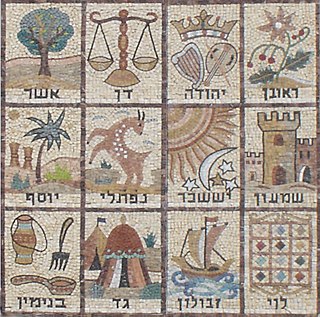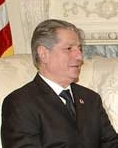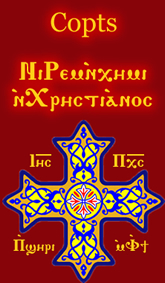Related Research Articles

Sudan, officially the Republic of the Sudan, is a country in northeastern Africa. It is bordered by Egypt to the north, Libya to the northwest, Chad to the west, the Central African Republic to the southwest, South Sudan to the south, Ethiopia to the southeast, Eritrea to the east, and the Red Sea to the northeast. Sudan has a population of 43 million people and occupies a total area of 1,886,068 square kilometres, making it the third-largest country in Africa and also the third-largest in the Arab world. Before the secession of South Sudan from Sudan on 9 July 2011, the united Sudan was the largest country in Africa and the Arab world by area. Sudan's predominant religion is Islam, and its official languages are Arabic and English. The capital is Khartoum, located at the confluence of the Blue and White Nile. Since June 2011, Sudan is the scene of an ongoing military conflict in its southern states.

The United Arab Republic was a sovereign state in the Middle East from 1958 to 1961. It was initially a political union between Egypt and Syria from 1958 until Syria seceded from the union after the 1961 Syrian coup d'état, leaving a rump state. Egypt continued to be known officially as the United Arab Republic until 1971.

The Israelites were a confederation of Iron Age Semitic-speaking tribes of the ancient Near East, who inhabited a part of Canaan during the tribal and monarchic periods. According to the religious narrative of the Hebrew Bible, the Israelites' origin is traced back to the Biblical patriarchs and matriarchs Abraham and his wife Sarah, through their son Isaac and his wife Rebecca, and their son Jacob who was later called Israel, whence they derive their name, with his wives Leah and Rachel and the handmaids Zilpa and Bilhah.

The Bedouin or Bedu are a grouping of nomadic Arab people who have historically inhabited the desert regions in North Africa, the Arabian Peninsula, Iraq and the Levant. The English word bedouin comes from the Arabic badawī, which means "desert dweller", and is traditionally contrasted with ḥāḍir, the term for sedentary people. Bedouin territory stretches from the vast deserts of North Africa to the rocky sands of the Middle East. They are traditionally divided into tribes, or clans, and historically share a common culture of herding camels and goat. The vast majority of Bedouin adhere to Islam, although there are some fewer numbers of Arab Christian Bedouins present in the Fertile Crescent.

The Near East is a Eurocentric geographical term which roughly encompasses a transcontinental region comprising Western Asia, Turkey, and Egypt. Despite having varying definitions within different academic circles, the term was originally applied to the maximum extent of the Ottoman Empire. The term has fallen into disuse in American English and has been replaced by the terms Middle East, which includes Egypt, and Western Asia, which includes Transcaucasia.

Omar Hassan Ahmad al-Bashir is a Sudanese politician who served as the seventh President of Sudan from 1989 to 2019, when he was deposed in a coup d'état. His 30-year dictatorship was marked by oppression, genocide, and human rights abuses. He was subsequently incarcerated, tried and convicted on multiple corruption charges. He came to power in 1989 when, as a brigadier in the Sudanese Army, he led a group of officers in a military coup that ousted the democratically elected government of prime minister Sadiq al-Mahdi after it began negotiations with rebels in the south. He was elected three times as President in elections that have been under scrutiny for electoral fraud. In 1992, al-Bashir founded the National Congress Party, which remained the dominant political party in the country until 2019. In March 2009, al-Bashir became the first sitting president to be indicted by the International Criminal Court (ICC), for allegedly directing a campaign of mass killing, rape, and pillage against civilians in Darfur.

Amine Pierre Gemayel is a Lebanese politician who was President of Lebanon from 1982 to 1988 and was the leader of Kataeb Party. Gemayel was elected to the presidency by the National Assembly on 21 September 1982, in place of his brother Bachir Gemayel who had been elected the previous month but had been assassinated before taking office.
Bashir or Basheer or the francicized Bachir or Bechir is a male given name. Derived from Arabic, it means "the one who brings good news". It is also a surname.
Charles Glass is an American-British author, journalist, broadcaster and publisher specializing in the Middle East and the Second World War.

Al Hilal Educational Club, known as Al-Hilal Omdurman or simply Al-Hilal Club for a short, is a Sudanese football club based in Omdurman.

Masood Khan is a Pakistani diplomat who serves as the 27th President of Azad Kashmir. Masood Khan joined the Foreign Service of Pakistan in 1980 and went on to serve in various diplomatic positions. From August 2003 to March 2005, he served as the Spokesperson of the Ministry of Foreign Affairs, Pakistan’s Ambassador and Permanent Representative to the United Nations and International Organisations in Geneva, Switzerland, from 2005 to 2008, Pakistan's Ambassador to China between September 2008 and September 2012 and as Pakistan's Permanent Representative to the United Nations, New York, between October 11, 2012 and February 7, 2015.
Sir Derek Plumbly is a British diplomat who has served throughout the Arab world. From 2012 to 2015, he served as the UN Special Coordinator for Lebanon.
The Peasants' Revolt was a rebellion against Egyptian conscription and taxation policies in Palestine. While rebel ranks consisted mostly of the local peasantry, urban notables and Bedouin tribes also formed an integral part of the revolt, which was a collective reaction to Egypt's gradual elimination of the unofficial rights and privileges previously enjoyed by the various classes of society in the Levant under Ottoman rule.

Egypt–Japan relations are foreign relations between Egypt and Japan. Such relations are described by the Egyptian ambassador to Japan as a "very strong friendship", with embassies mutually established. At present, the two nations maintain a cordial relationship with strong economic and trade relations.
Tahsin is an Arabic word which means improve, enhance, or enrich. It is used as a given name for males in Arabic-speaking and Muslim countries.
Ahmad Maher was an Egyptian diplomat. He served as the foreign minister of Egypt from 2001 to 2004.
Tahseen Bashir, or Tahsin Basheer, was an Egyptian diplomat who served as both a confidant and spokesman for several Egyptian presidents, including Gamal Nasser and Anwar Sadat. In 1977, Bashir was appointed Egypt's ambassador to the Arab League, and later he served as ambassador to Canada until 1985.

Coptic nationalism refers to the nationalism of Copts, an ethno-religious group that primarily inhabit the area of modern Egypt, where they are the largest Christian denomination.
The Syrian Peasant Revolt was an armed uprising of Levantine peasant classes against the rule of Ibrahim Pasha of Egypt in 1834–35. The revolt took place in areas of Ottoman Syria, at the time ruled by the semi-independent ruler of Egypt, who conquered the region from loyal Ottoman forces in 1831.
Vladimir Profirevich Polyakov was a Soviet diplomat who served as Soviet ambassador to Egypt as well as Soviet Vice-Minister of Foreign Affairs.